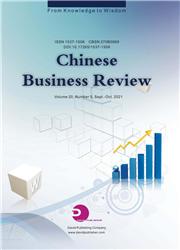The Effects of Gross vs. Net Asset Value-Based Managers’ Compensation on REIT Capital Structure and Performance. Evidence from the Italian REIT Market
引用次数: 0
Abstract
Investors should always argue about management fees because of their impact on net performance that can be substantial. This especially for investments, like real estate, which require intensive management. However, different from traditional mutual funds that are usually related to the gross value of the assets under management, but similar to other financial industry sectors (e.g. hedge funds and private equity funds), REIT managers’ compensation structure typically provides a basically fixed payment based alternatively on gross asset value (GAV) or net asset value (NAV). In addition, managers usually also gain a performance fee. The paper analyses how the two alternative compensation schemes influence REITs’ investment decisions and capital structure and, consequently, REITs’ share value and performance. The final issue addressed is whether—and under which conditions—one compensation scheme is superior to the other. Due to the (usual) market price discount on NAVs, both fee structures incentivise managers to leverage—even in a tax-free environment—in order to maximize the management fees. However, the leverage motivation is stronger for GAV-based than for NAV-based REITs, which are also expected to be more selective in investment decisions. Overall, considering initial fee percentage, GAV-based REITs are expected to execute higher management fees than NAV-based REITs due to the relevant leverage effect. Moreover, debt recourse produces different effects on share value if measured upon market price or net asset value. The empirical analysis focuses on public Italian REITs (2002-2012). The results seem to support the theoretical expectations. GAV-based REITs experience higher debt trends and levels than NAV-based REITs. At the same time, GAV-based REITs register lower real estate asset returns gross and net of management fees for both current and growth yields. Differences in the returns lead to permanent higher performances over total return indexes of NAV-based REITs compared to GAV-based REITs.基于总资产价值与净资产价值的经理人薪酬对REIT资本结构和绩效的影响。意大利房地产投资信托市场的证据
投资者应该一直争论管理费问题,因为管理费对净业绩的影响可能很大。这尤其适用于投资,如房地产,这需要密集的管理。然而,与通常与管理下资产总值相关的传统共同基金不同,但与其他金融行业(例如对冲基金和私募股权基金)类似,房地产投资信托基金经理的薪酬结构通常基于资产总值(GAV)或资产净值(NAV)提供基本固定的支付。此外,基金经理通常还会获得业绩费。本文分析了这两种补偿方案如何影响REITs的投资决策和资本结构,从而影响REITs的股票价值和业绩。最后要解决的问题是,在何种条件下,一种补偿方案是否优于另一种。由于资产净值(通常)的市场价格折扣,这两种费用结构都激励管理人员利用杠杆——即使是在免税的环境中——以最大化管理费用。然而,基于gav的REITs的杠杆动机比基于nav的REITs更强,后者在投资决策中也更有选择性。总体而言,考虑到初始费用百分比,由于相关的杠杆效应,基于gav的REITs预计将比基于nav的REITs执行更高的管理费。此外,如果以市场价格或净资产衡量,债务追索权对股票价值的影响是不同的。实证分析的重点是意大利公共REITs(2002-2012)。研究结果似乎支持了理论预期。基于gav的REITs的债务趋势和水平高于基于nav的REITs。与此同时,基于gav的REITs在当前收益和增长收益方面的总和净管理费的房地产资产回报率较低。收益差异导致基于nav的REITs在总收益指数上的表现永久性高于基于gav的REITs。
本文章由计算机程序翻译,如有差异,请以英文原文为准。
求助全文
约1分钟内获得全文
求助全文

 求助内容:
求助内容: 应助结果提醒方式:
应助结果提醒方式:


